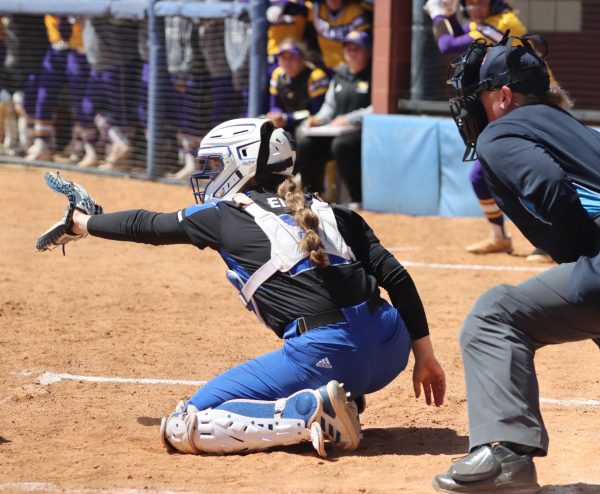Injury law possible for NCAA sports
The clock is ticking for those in the athletic department at Eastern and many other universities around the nation.
Beginning April 14 of next year those in the medical profession could have those in athletic circles tied up.
But it’s all in the interpretation.
The Health Insurance Portability and Accountability Act states that by April 14, colleges and universities and other health care providers can’t release any information about injuries suffered by athletes unless the athlete gives prior consent to that release.
Worst-case scenario, here’s what could happen.
Athletic trainer: “Coach, your starting quarterback can’t play the second half.”
Coach: “Why not?”
Athletic trainer: “He’s injured.”
Coach: “With what?”
Athletic trainer: “It would be against the law for me to tell you.”
Eastern athletic trainer Mark Bonnstetter doesn’t want it to come to that.
“I don’t’ think it’ll be that way,” he said. “But right now we just don’t know.”
Bonnstetter and employees in health services are working on plan to make sure Eastern is a compliance with the law. There is no solid timetable in tact for changes to be made, but Bonnstetter guaranteed Eastern would be in compliance by the deadline.
The problem he and other universities are having is the interpretation of the law. It may mean coaches and others can know about the condition of an athlete, but can’t know what type of medical treatment athletes are going to receive.
In the past, coaches would talk freely to the media and others about the types of treatment an athlete received. Will the athlete have an MRI taken? Will the athlete need surgery? Will the athlete need a cast for a broken bone? The days of all of this information being released to whoever wants to know are almost certainly gone.
Eastern has already taken steps to come into compliance.
Bonnstetter met with coaches to discuss the new regulation and advised them to defer any questions about injuries to him.
Panther head football coach Bob Spoo won’t talk about injuries any more and will only say whether or not a player will be ready at game time.
The regulation was made in the interest of keeping health records confidential so insurance companies won’t drop clients because of health reasons.
But this law seems a bit extreme, especially when applied to those in athletic circles.
Coaches have an interest to know the condition of the players they are supposed to coach. It undermines their ability to do their job. Much of the sports world revolves around injuries and the treatment of them. To deny the release of public information about the athletes they follow – public figures – denies free speech rights.
The whole thing could be solved with a simple signature on a waiver. Injury status can be released with the permission of the athlete, but it seems as though there’s much more at stake here and the clock is far from striking midnight on the issue.











































